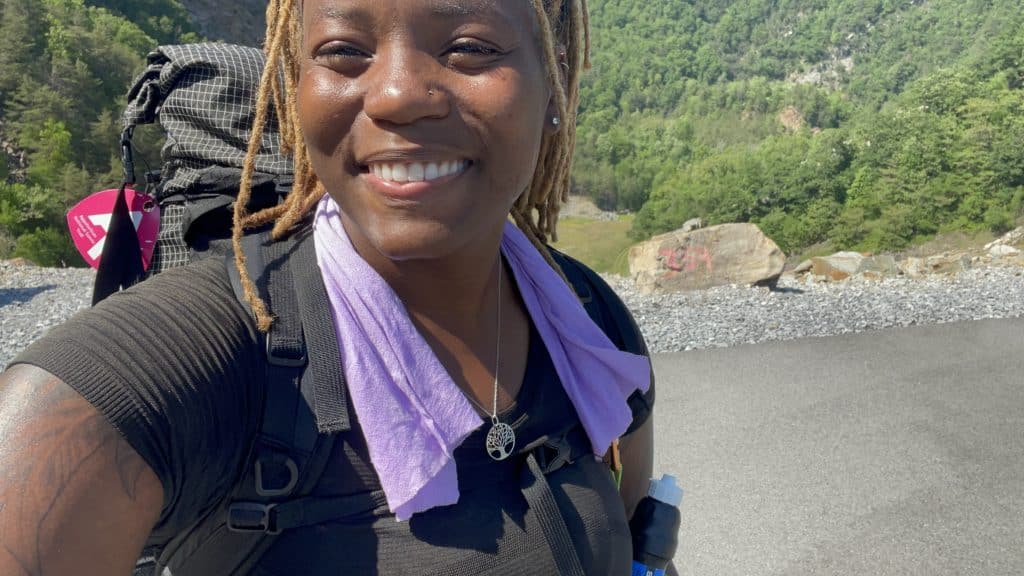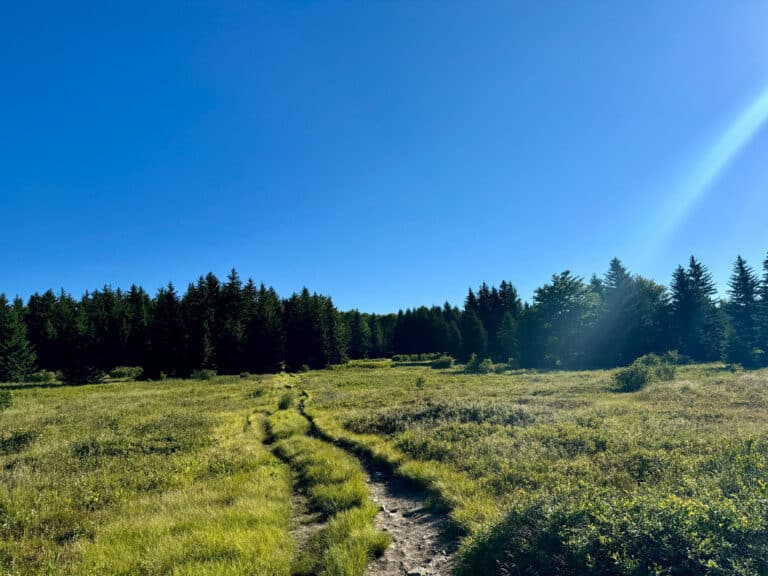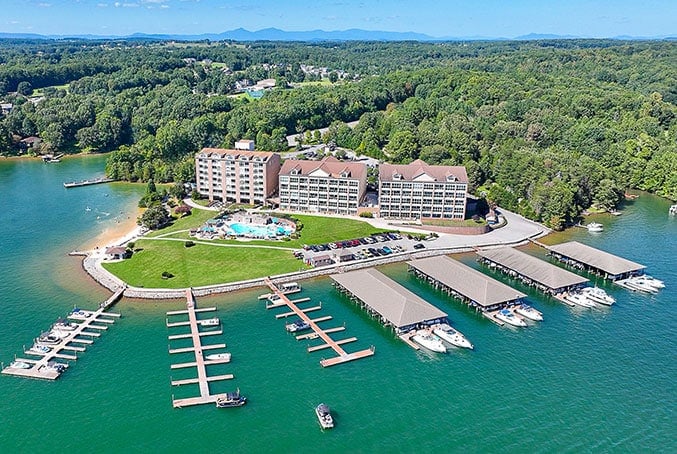Packaged snacks, storage bags, cans—long-distance hiking can generate a lot of waste, especially by those out on the trail for months at a time. Even when hikers try to limit the load in their packs—and hopefully, follow Leave No Trace principles—excess waste seems inevitable.
But Kareema Dixon, trail name “Honey,” is trying to prove otherwise. Dixon is embarking on a zero-waste thru hike of the Appalachian Trail. She said that she thinks it’s important for hikers to consider how every piece of nature is connected, and how their actions impact it.
“When you see a piece of trash on trail, sometimes you don’t realize you’re picking it up and throwing it in the trash just to go to another part of the world, another part of the natural environment,” Dixon said.
Zero-waste is a movement that aims to combat the trash that continuously piles up in landfills across the world by taking the steps to prevent waste in the first place. The movement doesn’t demand perfection, but instead emphasizes individual effort to create a more sustainable environment. Those who live by zero-waste principles will buy food and other items in bulk, bring their own containers to stores when possible, avoid items that come in non-sustainable packaging, and make it a goal to simply buy less stuff.
Dixon personally defines zero-waste as “doing the best you can, with what you can, in order to ensure a better tomorrow for yourself, others, and the environment.”

She became interested in zero-waste in 2016 when she was in college. After watching a video on YouTube about how a single mother used zero-waste to save money, to the point of not owning a trash can, Dixon began to research and implement similar behaviors in her own life.
By 2019, she no longer owned a trash can. But then the pandemic hit, and Dixon’s zero-waste lifestyle came to a standstill after she moved from the city of Philadelphia to an area where she could no longer shop in bulk or at farmers markets, which were closed due to the pandemic.
She’s since been able to shift back towards a zero-waste lifestyle and now has taken it to the trail. She said the interest she’s garnered from other hikers leads them to think about little things they could do to be more sustainable in the outdoors.
“One of the reasons I decided to bring zero-waste, particularly to the outdoors movement is because more people are willing to listen and more people are willing to care because they care about the outdoors, they care about the environment,” Dixon said. “I think that if something significant was to be done for environmental change, this community would be the best place to start.”
Dixon was a marathon runner from Philadelphia for 10 years before she transitioned to hiking. During her first thru-hike, Dixon is mostly using gear that she already owned, and she bought additional equipment secondhand from thrift stores, Amazon used marketplace, and REI garage sale.
Dixon bought food in bulk from a local co-op, cooking and dehydrating it for storage in compostable bio-bags. Her mother will send her resupply boxes when needed. For non-traditional recyclables like shoes, Dixon sends the items to a company called TerraCycle that will recycle them and turn them into new products.
For breakfast, she’ll eat muesli or oatmeal bought in bulk, and will incorporate protein powder into her diet while dinners consist of things that she can cold soak at camp to eat, such as brown rice, lentils, vegetables, and couscous.
Dixon acknowledged that certain aspects of a zero-waste thru-hike can be challenging. “I bought a jar of salsa, and I had to carry that jar because the town didn’t recycle glass for 60 miles until I could send it home,” she said. “Things like that are a bit tedious and cumbersome.”
She said it can also be difficult because she doesn’t turn down trail magic, acts of kindness done by others on the trail that sometimes involve giving out some form of packaged food or materials. But Dixon’s favorite part of the journey so far has been meeting people.
“I tell people every day it’s the best place on earth. You don’t meet people this nice and this willing to help other people in any part of the world,” she said.
You can follow Honey’s journey at https://linktr.ee/zerowastehoney or on Instagram @zerowastehoney.
Photos courtesy of Kareema Dixon








